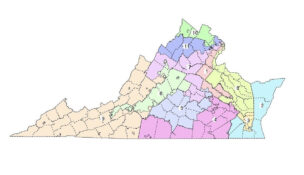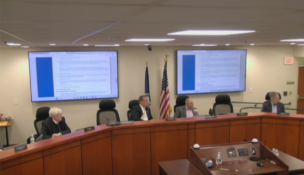House panel rejects ‘net neutrality’ bill
Ryan Persaud //February 7, 2018//
A bill to prohibit internet service providers from prioritizing or blocking certain websites based on content or hosting platform was killed Tuesday in a House subcommittee.
The House Commerce and Labor subcommittee voted 5-0 against the bill, with one abstention.
HB 705 was introduced by Del. Lee Carter, D-Manassas, who argued that Virginia should maintain the principle of net neutrality despite a recent decision by the Federal Communications Commission to reverse such rules.
“The internet, since its inception, has been run by agreement as content neutral,” Carter said. “In 2015, the federal government set in place regulation to codify what was already being done, and those were overturned in December.”
Del. Greg Habeeb, R-Salem, chair of the subcommittee, argued that the bill would prompt broadband providers to pull out of Virginia.
“We are so desperate in parts of the area that I represent to get broadband, that any barrier to entry in that market that we impose is a risk to prevent them from coming,” Habeeb said. “I can’t imagine supporting a bill that may lead to a broadband provider not considering entering the Craig County market, for example.”
Carter disagreed that net neutrality would discourage internet service providers from providing services to Virginia residents.
“If the broadband providers are willing to forego 8.5 million customers because they can’t impose additional charges on services rather than offering all-inclusive packages,” Carter said, “that would greatly surprise me.”
Habeeb also argued that the FCC ruling would override the bill, restricting Virginia’s ability to create its own net neutrality law. Carter disagreed, saying that instating net neutrality rules is within the state’s purview.
“This is not dealing with interstate commerce,” Carter said. “We are discussing explicitly the point of sale, and the point of sale is between a Virginia resident and a Virginia company offering broadband service.”
Representatives of the American Civil Liberties Union and GreenSmith Energy Management Systems, as well as a few private citizens, told the subcommittee they supported Carter’s bill. They said it will prevent corporations from deciding what online information Virginians receive.
The bill was opposed by representatives of internet service providers such as T-Mobile and Verizon Wireless as well as the Virginia Cable Telecommunications Association and the Virginia Chamber of Commerce.
“This bill will increase cost to consumers,” said Ray LaMura, president of the Virginia Cable of Telecommunications Association. “It will stifle investment in new technologies, and it will stifle investment in rural telehealth, which will also chill investments to unserved areas of the commonwealth.”
n


















